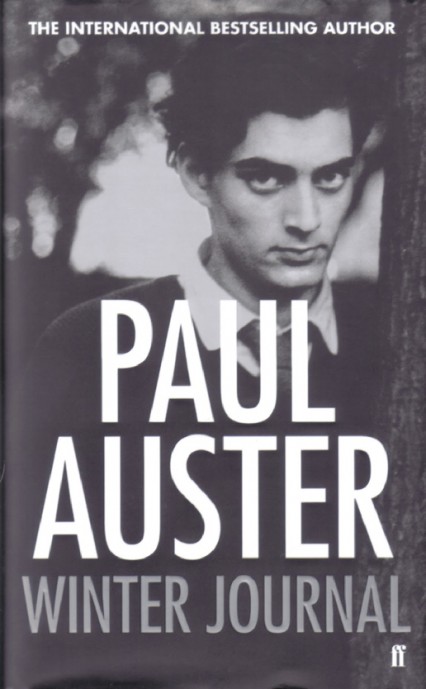James Lloyd reflects on Winter Journal by Paul Auster, an autobiographical work by the elusive American author.
Paul Auster’s work divides opinion. On the one hand he is thought of by some as an experimental writer who is nonetheless compulsively readable, and on the other, as some kind of fraud who freights his novels with highbrow references and metafictional tropes to disguise the fact that he is something of a charlatan. The latter view is vastly unfair. Paul Auster himself has balked at the idea that his novels are experimental and describes his books as ‘easy’.
Rather than an outright or natural novelist, Auster is more of a storyteller and much of his work can be regarded as adult fairytales. In this sense he occupies a territory made familiar by Poe and Hawthorne, both of whom he has cited as early influences. Indeed, Auster’s longtime friend, Don DeLillo, has acknowledged that while he himself is ‘part of a long Modernist line beginning with Joyce’, the former’s work stems from the 19th Century American masters. As DeLillo puts it, Auster’s work ‘blends modern surfaces with 19th century interiors.’
His latest publication, Winter Journal, sees Paul Auster go over old ground in more ways than one. His first book, The Invention of Solitude, examines in the first of two parts his relationship with his ‘invisible’ father, Samuel, following his sudden death from a heart attack. In the largely philosophical second part, Auster writes luminously of subjects such as chance and identity, those he would go on to distil in his novels. But whereas The Invention of Solitude is arguably Auster’s strongest work –

by Paul Auster
240pp, Faber and Faber, £17.99
There are moments that provide examples of Auster’s sincerity, sensitivities and compassion, and fans will take pleasure and surprise in discovering more about what makes the man tick (not to mention his disparaging anecdotes regarding the French). Auster documents with seriousness and humour the whim of human emotions toward death, and evokes empathy for the anxiety he suffered following the death of his mother and the car crash that almost killed his wife and daughter. At one point he compares his writing hand to that of Keats’ in what might be read as attempt to self-
But then there are the simpering platitudes, which patronise and seem to punctuate Auster’s apathy towards his subject. It is Auster himself who best sums this up when he writes of an argument with his downstairs neighbour, Madame Rubenstein: ‘Her arguments struck you as lame, cliché-
Much of the book is given up to descriptions of every house and apartment Auster has lived in. From an initial aimlessness this becomes increasingly intriguing. However, it is difficult to escape the idea that it is nothing but a cynical ploy to build on his reputation as a cult writer. Not only that but Paul Auster demonstrates a tendency to exaggerate. In a childhood reminiscence, he tells of the time when he and a friend performed ‘belly-
Auster once described how, prior to the publication of Samuel Beckett’s novella, Company, he thought things had ‘dried up’ for his one-
‘A voice comes to one in the dark. Imagine.’
‘To one on his back in the dark.’
–
‘I am alone in the dark, turning the world around in my head as I struggle through another bout of insomnia…’
–
Similarly, Travels in the Scriptorium opens with protagonist, Mr Blank, an old man who sits on a bed in an unknown chamber, a camera in the ceiling taking pictures, ‘the shutter clicking silently every second’. Another Beckettian creature comparable to ‘the Figure’ from the Irishman’s television play, Ghost Trio. It is not that Auster may have been borrowing, recycling or inspired by certain ideas from Beckett’s work that is the problem here, but his resulting efforts.
Similarly, Beckett’s influence is again evident in Winter Journal. Written in the second person, a decision based perhaps on Auster’s employment of it in the best part of his novel Invisible (the section entitled Summer), it brings to mind the two old men sitting at right angles to each other in Ohio Impromptu. In other words, the idea of ‘Je est un autre’ (‘I is another’) is made ‘other’ in Winter Journal by use of the second person narration.
It is true that many of Auster’s American contemporaries are better writers. None, however, seem to inspire the kind of cult fandom that Auster has achieved with his writing (for instance, I have met many people, from many parts of the world, who have bought red notebooks due to their love for his writing). Indeed, Auster’s storytelling skill, of putting one story up against another to create a kind of ‘electricity’, is quite dazzling when he is on form, by which I mean in his earlier novels, such as The New York Trilogy, Leviathan, Moon Palace, The Book of Illusions –
Near the end of Winter Journal, Paul Auster writes, ‘A door has closed. Another door has opened’. Long time admirers of his work will perhaps feel that he has indeed crossed a threshold, that the man who once enthralled us with his storytelling has lost interest. Paul Auster has entered the winter of his life with his readers left out in the cold.










